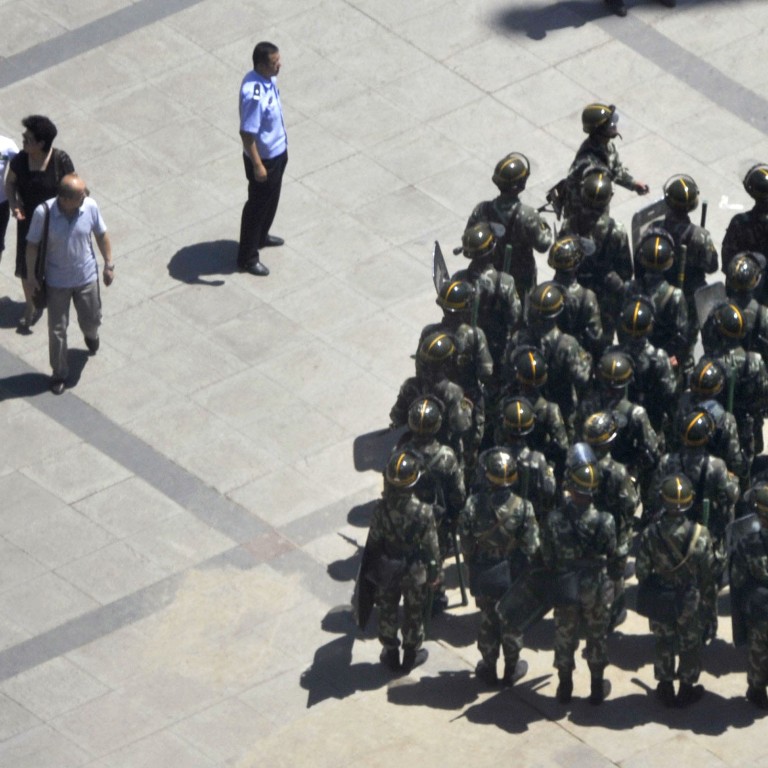
Xinjiang may pass own laws to combat terrorists
Officials in the restive Xinjiang region may enact new counter-terrorism laws, which experts said could put more emphasis on authorising preventive measures than existing national laws do.
Officials in the restive Xinjiang region may enact new counter-terrorism laws, which experts said could put more emphasis on authorising preventive measures than existing national laws do.
Xinjiang legislative official Bo Xiao said the government was looking at possible legislation, reported yesterday.
"The legislation is in the second phase of this year's legislative work plan, which means it is under discussion regarding feasibility and impact," Bo, the director of Xinjiang's legislative affairs commission, was cited by the newspaper as saying.
Bo said it was difficult to predict when the draft would be finalised, and it could take several years, but work was planned to start this year, the paper said.
The decision on the draft law was made following a string of incidents that saw more than 100 people killed over the past year.
Li Wei, an anti-terrorism expert at the China Institutes of Contemporary International Relations, said that as an autonomous region, Xinjiang had the right to draft a regional law to solve pressing local problems.
"Xinjiang's regional anti-terrorism [legislation] will not conflict with the national Criminal Law, which focuses on different levels of punishment" as deterrents, Li said.
"But threats are nothing for terrorists because they are used to carrying out suicide attacks. The new anti-terrorism law will stress the importance and details of precaution."
Li declined to detail what kinds of regulations would be under consideration, but admitted the changes "might inconvenience the public".
China amended the Criminal Law in 2001 to tackle what it called terror-related crimes in Xinjiang, but regional officials consider it inadequate for certain cases; for example it lacks a precise legal definition of terrorism.
Dr Barry Sautman, an associate professor of social science at the Hong Kong University of Science and Technology, said he was concerned about how an anti-terrorism law might be framed.
"It remains to be seen … whether [a new law] will 'add value' to existing criminal law, by providing more effective ways to deal with those who are in fact terrorists … if it does not do so, it will be largely symbolic - showing [Beijing's] determination to suppress terrorism," Sautman said.
Previous reports have said Beijing started to draft its national anti-terrorist law in 2005, but no details have been made public.

